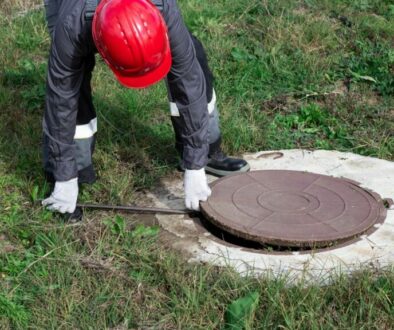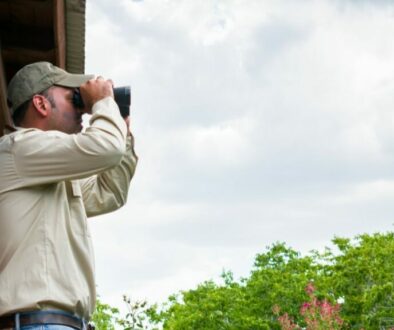How To Become A First Responder?
When an emergency strikes, first responders are the individuals who are there to aid those in distress. If you are interested in pursuing a career in this field, there are a few things you need to know first. In this article, we will discuss the steps to becoming a first responder, the skills needed for the job, what exactly a first responder is, and the benefits of working in this field.
Steps to Becoming a First Responder
The path to becoming a first responder may vary depending on the country or state you live in. However, most places require that an individual completes a certain set of requirements. These requirements may include:
Completing a high school education or equivalent
Obtaining certification in first aid, CPR and AED
Completing a first responder training course
Passing a first responder exam
Meeting health and fitness requirements
It is important to note that some places may require additional certifications or training courses before you can become a first responder.
- Obtain Training and Certifications
One of the most important requirements for becoming a first responder is obtaining certification in first aid, CPR and AED. This is because these skills are crucial in emergency situations and can mean the difference between life and death. You will learn how to recognize and respond to a variety of emergencies, including heart attacks, strokes, and choking incidents. You will also learn how to use an automated external defibrillator (AED), which is a device that can help to restore a normal heart rhythm in someone who is experiencing cardiac arrest.
Completing a first responder training course is also an essential step in becoming a first responder. During this course, you will learn how to respond to a variety of emergencies, including medical emergencies, natural disasters, and terrorist attacks. You will also learn how to communicate effectively with other emergency responders and how to work as part of a team.
Passing a first responder exam is another important requirement for becoming a first responder. This exam will test your knowledge of first aid, CPR, and other emergency response procedures. It is important to study and prepare for this exam in order to ensure that you are fully prepared to respond to emergencies. - Meet Health and Fitness Requirements
In addition to completing the required training and certifications, it is also important to meet certain health and fitness requirements. This is because first responders may be required to perform physically demanding tasks, such as carrying heavy equipment or lifting patients. You may be required to pass a physical fitness test or undergo a medical examination to ensure that you are physically capable of performing these tasks.
Overall, becoming a first responder requires a significant amount of training and preparation. However, the rewards of this career can be immeasurable. As a first responder, you will have the opportunity to help people in their time of greatest need and make a real difference in your community.
Skills Needed to Become a First Responder
When it comes to being a first responder, there are many skills that are necessary to have in order to be successful in this field. One of the most important skills is effective communication. As a first responder, you will need to be able to communicate with your team members, as well as with the individuals you are assisting. This means being able to clearly and concisely convey information, while also being able to listen actively and respond appropriately.
Another crucial skill for first responders is the ability to think quickly and critically. In many emergency situations, time is of the essence, and being able to make quick decisions can be the difference between life and death. Critical thinking is also important, as it allows you to assess a situation and determine the best course of action based on the information available.
Stress management and coping skills are also essential for first responders. This job can be incredibly stressful, both physically and emotionally. It is important to have strategies in place to manage stress and cope with the difficult situations you may encounter.
Physical fitness and endurance are also important for first responders. This job can be physically demanding, requiring you to be on your feet for long periods of time, carry heavy equipment, and perform strenuous tasks. Being physically fit and having good endurance can help you perform your job more effectively and reduce the risk of injury.
Finally, compassion and empathy are crucial for first responders. This job requires you to interact with people who are often experiencing some of the worst moments of their lives. Being able to show compassion and empathy can help to ease their suffering and provide comfort in a difficult time.
In conclusion, becoming a first responder requires a unique set of skills and qualities. While some of these skills may come naturally, others can be developed over time with practice and experience. If you are considering a career as a first responder, it is important to understand the skills required and be willing to work to develop them.
What is a First Responder?
A first responder is an individual who is the first to arrive at the scene of an emergency. Their main responsibility is to provide immediate assistance to those in need. First responders typically include police officers, firefighters, and emergency medical technicians (EMTs).
First responders are trained to provide basic medical care, evaluate the safety of the scene, and assess the necessary steps to take in order to prevent further harm. They also work to stabilize patients before they can be transported to the hospital.
Police officers are often the first on the scene of an emergency. They are trained to assess the situation and secure the area to ensure the safety of all individuals involved. They may also provide first aid, such as applying pressure to a wound or performing CPR, until medical professionals arrive.
Firefighters are another group of first responders who are often called to the scene of an emergency. Their primary responsibility is to extinguish fires and rescue individuals who are trapped in burning buildings. They are also trained to provide basic medical care to those in need.
EMTs are medical professionals who are trained to provide emergency medical care to patients who are in critical condition. They are often the first medical professionals to arrive on the scene of an emergency and are responsible for stabilizing the patient before transporting them to the hospital.
In addition to their primary responsibilities, first responders also play an important role in educating the public about emergency preparedness. They provide information on how to create an emergency kit, develop an emergency plan, and stay informed during a crisis.
Overall, first responders are an essential part of our emergency response system. They work tirelessly to ensure the safety and well-being of our communities, often putting their own lives at risk to do so.
The Benefits of Working as a First Responder
Being a first responder is not just a job, it is a calling. It requires courage, compassion, and a willingness to put others before oneself. If you are considering a career as a first responder, here are some additional benefits to keep in mind:
Job Security and Stability
First responders are always in demand, as emergencies can happen at any time and in any place. This means that there is a high level of job security and stability in this field. Whether you work for a government agency, a private company, or a non-profit organization, you can be confident that your skills and expertise will always be needed.
Opportunities for Advancement
Working as a first responder is not just a job, it is a career. There are many opportunities for advancement within the field, including specialized training, leadership roles, and management positions. Whether you want to become a paramedic, a firefighter, or a police officer, there are many paths to success in this rewarding field.
Making a Positive Impact on People’s Lives
As a first responder, you have the opportunity to make a real difference in people’s lives. Whether you are responding to a medical emergency, putting out a fire, or helping someone in distress, you are providing crucial assistance and support when people need it most. The satisfaction of knowing that you have helped someone in their time of need can be an incomparable feeling.
Flexible Scheduling
Many first responder jobs offer flexible scheduling, which can be a major benefit for those who need to balance work with other responsibilities, such as family or education. Whether you prefer to work nights, weekends, or holidays, there are many options available to meet your needs.
Competitive Salaries and Benefits
First responders are often paid competitive salaries and benefits, which can include health insurance, retirement plans, and paid time off. In addition, many first responder jobs offer opportunities for overtime and hazard pay, which can increase your earnings even further.
Overall, working as a first responder can be a challenging and rewarding career choice. If you have a passion for helping others and want to make a positive impact in your community, this may be the right career path for you.
Becoming a first responder is not an easy process, but it is a noble profession that provides a valuable service to our communities. By obtaining the necessary certifications and training, possessing the right skills, and having a true passion for helping others, you can become a first responder and contribute to making the world a safer and better place for everyone.




